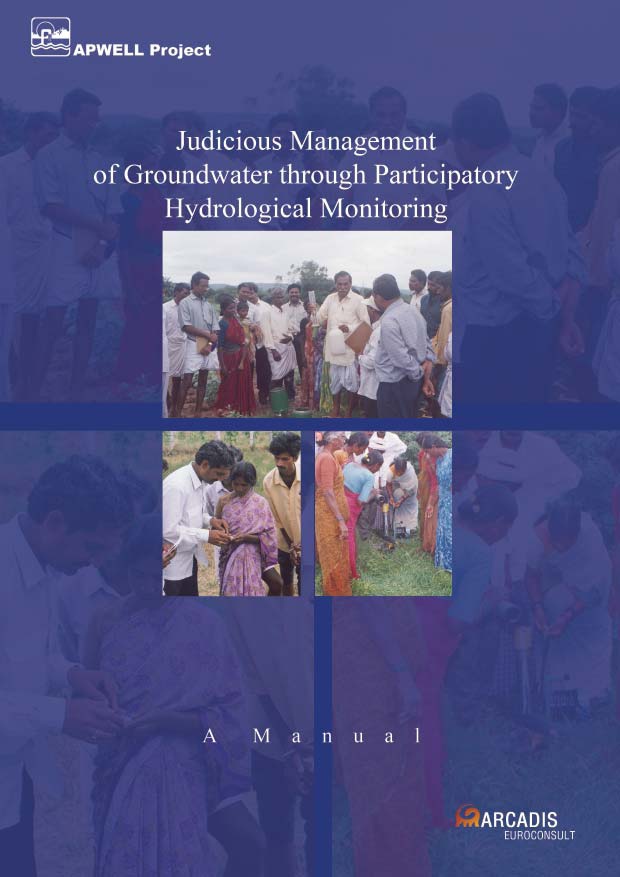Preventing groundwater abuse depends on the users' knowledge of what constitutes this over-exploitation and abuse, and why it is undesirable. The success of APWELL, therefore, depends on participatory hydrological monitoring in which the users were trained in basic hydrology and charged with monitoring the hydrological balance of the watershed. In addition to quantity, APWELL has also been focusing on drinking quality, as the project found that many farmers depend on irrigation borewells for their drinking water.
This article presents two documents that detail the process. These are both authored by SV Govardhan Das, who initiated and implemented the project.
The 'Participatory Hydrological Monitoring Manual' details every step of the project, and is a good resource for individuals and organisations seeking to replicate this project. The manual is organised as follows:
 Introduction
Introduction
This chapter presents the objectives and rationale for the APWELL project.The planning chart used for the project is included, which will prove useful for replication elsewhere.
Gearing up
This section details the work that needs to be done by the implementing agency before any field implementation. This preparatory phase includes staff training and desk-based assessment.
Preparatory Phase
Before actual implementation in the field, it is essential to establish an understanding with the communities involved. This section details the methods by which this can be achieved, including meeting with community leaders, awareness creation etc. This phase also includes some technical preparations such as identifying wells for monitoring etc.
Triggering community action
This phase marks the beginning of actual field implementation. As with the phase called 'gearing up' this begins with the training of volunteers and allocating responsibilities.
Crop-water budgeting
Watershed development frequently leads to increased usage, which nullifies the benefits of the recharge measures. APWELL pays attention to demand management by introducing water budgeting for crops. This includes estimation of groundwater draft, recharge, and a crop plan based on these.
Documentation, dissemination, and linkages
To ensure that the lessons learnt in this endeavour are shared widely, the project has built in a system of documentation and dissemination. This system, including reports,papers and hydrological data is explained in this section.
Download the entire manual here.
Monitoring, assessment, and legislation of groundwater resources in Andhra Pradesh, India: Recent developments
This paper, presented at a workshop in 2001, talks of the recent innovations in groundwater management. The various methods of groundwater assessment, including the GEC approach are explained. It details the APWELL approach, especially that of participatory hydrological monitoring and recommends that it be implemented in all watersheds.
Download the paper here.
/articles/apwell-project-andhra-pradeshs-experience-participatory-hydrological-monitoring